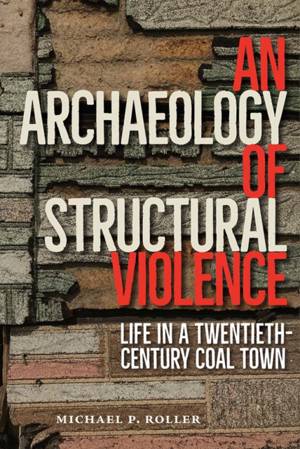
Je cadeautjes zeker op tijd in huis hebben voor de feestdagen? Kom langs in onze winkels en vind het perfecte geschenk!
- Afhalen na 1 uur in een winkel met voorraad
- Gratis thuislevering in België vanaf € 30
- Ruim aanbod met 7 miljoen producten
Je cadeautjes zeker op tijd in huis hebben voor de feestdagen? Kom langs in onze winkels en vind het perfecte geschenk!
- Afhalen na 1 uur in een winkel met voorraad
- Gratis thuislevering in België vanaf € 30
- Ruim aanbod met 7 miljoen producten
Zoeken
€ 122,45
+ 244 punten
Omschrijving
Drawing on material evidence from daily life in a Pennsylvania coal-mining town, this book offers an up-close view of the political economy of the United States over the course of the twentieth century. This community's story illustrates the great ironies of this era, showing how modernist progress and plenty were inseparable from the destructive cycles of capitalism. At the heart of this book is one of the bloodiest yet least-known acts of labor violence in American history, the 1897 Lattimer Massacre, in which 19 striking immigrant mineworkers were killed and 40 more were injured. Michael Roller looks beneath this moment of outright violence at the everyday material and spatial conditions that supported it, pointing to the growth of shanty enclaves on the periphery of the town that reveals the reliance of coal companies on immigrant surplus labor. Roller then documents the changing landscape of the region after the event as the anthracite coal industry declined, as well as community redevelopment efforts in the late twentieth century. This rare sustained geographical focus and long historical view illuminates the rise of soft forms of power and violence over workers, citizens, and consumers between the late 1800s and the present day. Roller expertly blends archaeology, labor history, ethnography, and critical social theory to demonstrate how the archaeology of the recent past can uncover the deep foundations of today's social troubles. A volume in the series Cultural Heritage Studies, edited by Paul A. Shackel
Specificaties
Betrokkenen
- Auteur(s):
- Uitgeverij:
Inhoud
- Aantal bladzijden:
- 254
- Taal:
- Engels
- Reeks:
Eigenschappen
- Productcode (EAN):
- 9780813056081
- Verschijningsdatum:
- 6/11/2018
- Uitvoering:
- Hardcover
- Formaat:
- Genaaid
- Afmetingen:
- 152 mm x 229 mm
- Gewicht:
- 544 g

Alleen bij Standaard Boekhandel
+ 244 punten op je klantenkaart van Standaard Boekhandel
Beoordelingen
We publiceren alleen reviews die voldoen aan de voorwaarden voor reviews. Bekijk onze voorwaarden voor reviews.









